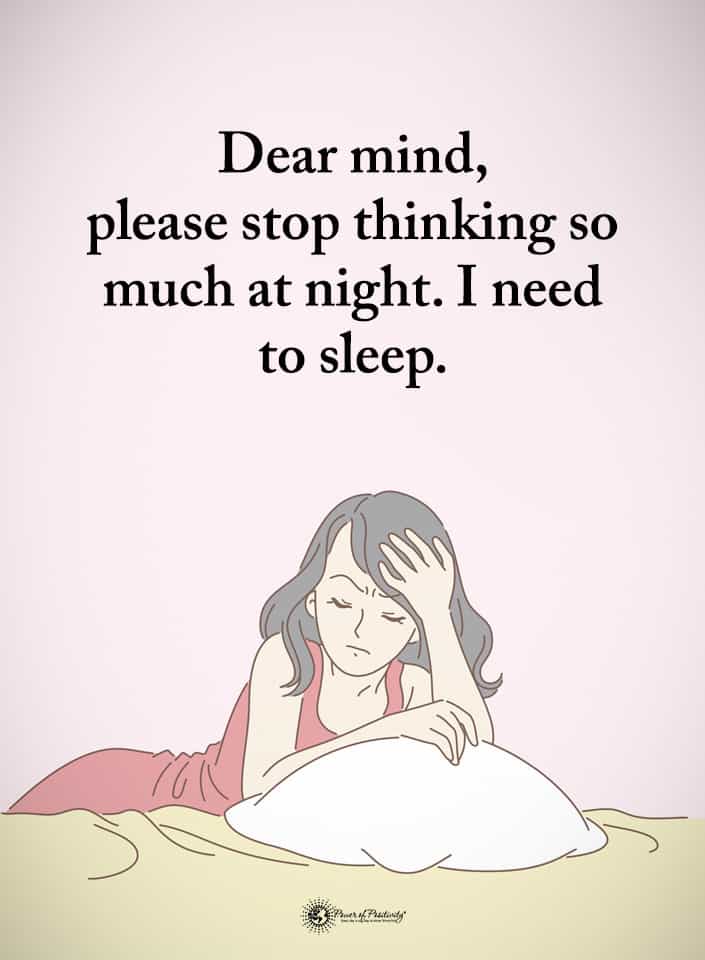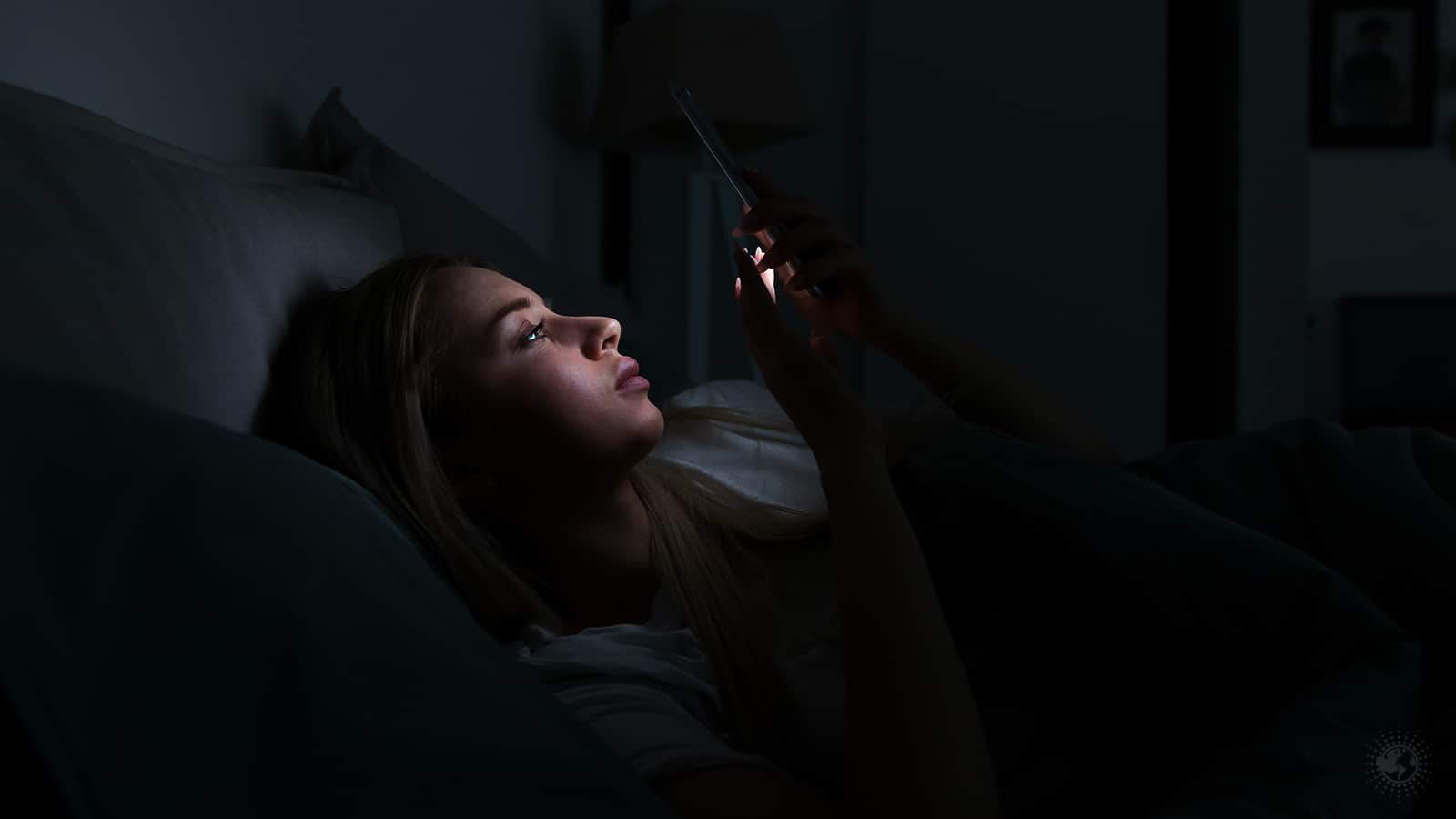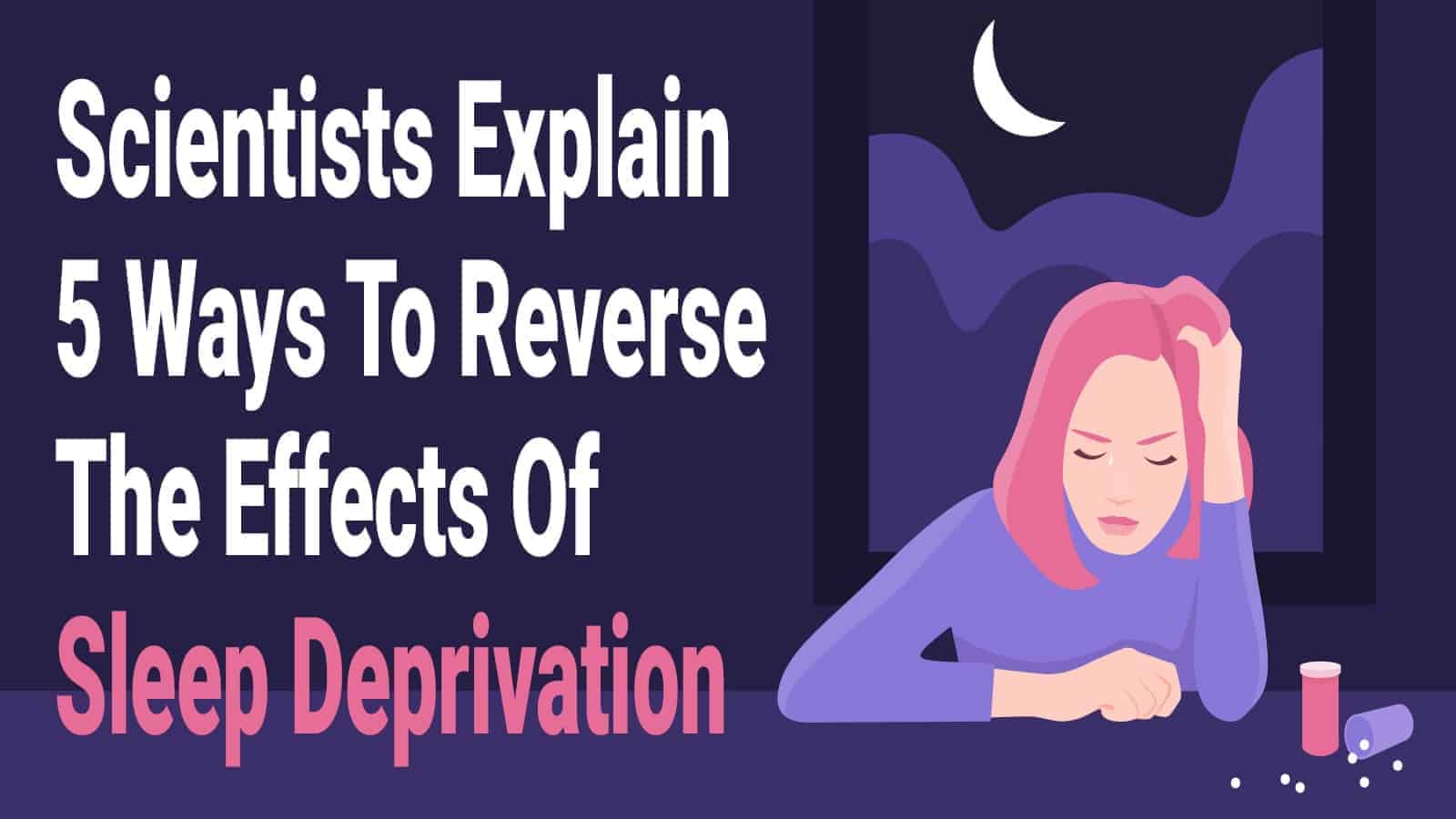If you’ve been struggling to stay alert, felt grouchy and irritable, or felt tired, the culprit is likely your sleep. Even if you try to get enough shut-eye, some habits that you don’t even think about could be contributing to your less-than-restful slumber. Diet and exercise play a critical role in how well you sleep. So do your TV and phone scrolling habits. Pay close attention to what you do each day and learn how these 15 unhealthy habits can be disruptive to your sleep.
Fifteen Unhealthy Habits That Prove Disruptive to Your Sleep
Avoid these fifteen habits that prove disruptive to a good night’s rest.
1 – Sleeping Too Little
According to the United States Department of Health and Human Services, the average adult needs 7-8 hours of sleep per night. Your body may be able to function on less sleep for a while, but sleep debt will catch up with you eventually and be detrimental to your health in the long term. Pay attention to how your body handles sleep and adjust your schedule as life allows.
2 – Getting too much sleep
Research has shown that sleeping too much can be as harmful to you as sleeping too little. Excess sleep disrupts your circadian rhythm and makes you feel more fatigued, which leads to your body, not being able to recognize when you are tired. Anything over 9 hours counts as potential excess sleep, which can be caused by depression, stress, or sleep debt.
3 – Not Maintaining a Regular Sleep Schedule
The human body thrives on routine. Having close to the same mealtimes and bedtime each day helps your body to get into a pattern of sleepiness and wakefulness at regular intervals at a set time.
Shift workers, such as customer service, factory employees, and emergency personnel, often suffer from a lack of regular sleep because of erratic work schedules. This causes you to sleep too much or too little. If you can, aim to go to bad at around the same time each night with a variance of no more than half an hour.
4 – Napping Incorrectly
Although a short nap in the afternoon can reinvigorate you, doing it for too long or att he wrong time makes you less likely to sleep well at night. Taking a nap in the early afternoon works best because your circadian rhythm naturally induces lethargy around that time. If you sleep longer than 30 minutes, you risk transitioning into a deeper sleep and disrupting your nighttime sleep.
5 – Drinking Caffeine at Night
You might be used to drinking your cup of morning coffee, but you should forgo having any caffeine sooner than six hours before bedtime. The production of cortisol and adrenaline from caffeine blocks the brain’s adenosine receptors. Adenosine is the chemical responsible for inducing feelings of sleepiness. You might be more likely to stay up longer than usual.
6 – Eating Too Soon Before Bedtime
Going off the previous statement, eating a big dinner too soon before bedtime is disruptive to your sleep. When you eat food, the process of digestion starts immediately. About three hours later, it ends up in your stomach and causes a buildup of stomach acid. If you suffer from acid reflux, you will experience even more detrimental effects as you wake up from heartburn.
7 – Eating Too Much Before Bedtime
Even if you’re hungry from a long day at work, avoid eating a large meal before bedtime. The effort of digesting food prevents you from falling asleep properly. Here are some foods to eat as healthy snacks before bedtime:
- Yogurt
- Seafood
- Whole-wheat Bread
- Peanut Butter
- Cheese
Complex carbohydrates stimulate the production of serotonin which is a chemical that regulates and induces sleep. Dairy products contain tryptophan, a compound that stimulates the production of serotonin.
Dairy also helps neutralize the effects of stomach acid. If you drink warm milk, it can have a psychological impact on relaxation.
8 – Not Eating Breakfast
As hard is it might be, taking the time to eat breakfast is vital. When you eat your morning meal, it signals the body to produce more energy and get you ready for the day. When you go without eating, your body has to use its remaining stores of blood sugar.
Once this is gone, your body releases a stress hormone to trigger the conversion of protein and fat to glucose. A buildup of cortisol throughout the day is disruptive to your sleep because it prevents you from relaxing.
9 – Remaining Sedentary
Humans did not evolve to lead a sedentary lifestyle. Studies prove a positive link between people who lead a sedentary lifestyle, whether from a desk job or from sedentary pursuits, and occurrences of insomnia. People who are able to exercise regularly sleep more deeply than those who do not.
Rather than curl up on the sofa watching television, taking a short walk in the evening after work can help you. Exercise releases endorphins, which create a sense of relaxation and make it easier for you to fall asleep.
If you have a desk job, you should take frequent stretch breaks to keep your blood flowing. The best ratio is ten minutes per hour if your workload allows for such an arrangement. Rest breaks also reduce eyestrain-induced headaches and make it easier to sleep.
10 – Exercising Too Late
Exercise is rarely a bad thing, but you want to be sure not to exercise too late in the evening. A workout gets your blood flowing, which increases your level of oxygenation and alertness. If you’re more alert, you will find it harder to relax your mind and body. It also raises your body temperature. The subsequent lowering of temperature can trigger sleepiness.
It is best to avoid exercise later than two hours prior to bedtime. If it’s a heavy workout, that amount should be extended to three hours.
11 – Ignoring the Need for Darkness
Keeping electrical light, sunlight, or moonlight coming into your bedroom can be disruptive to your sleep cycle. Darkness induces the production of melatonin in the body, preparing it for sleep. The widespread introduction of artificial light in the early 20th century was responsible for an irreversible change in how we deal with sleep.
Look for light-dampening curtains to put on your windows if your bedroom has exterior windows. If not, another alternative is to get a sleep mask to block out light.
12 – Not Relaxing Before Bed
Today’s always-on lifestyle makes it hard to unwind. Research suggests that taking at least an hour of downtime before bed can reduce instances of insomnia. Engaging in a light low-stimulus activity like reading a favorite novel works the best to relax the mind and lower stress levels.
Engaging in slow deep-breathing exercises induces a physical relaxation response for your heart, lungs, and muscles. Start by taking a deep breath into the diaphragm for four slow counts, hold it for seven counts, and exhaling for eight. Wait four seconds and repeat.
Deep breathing exercises work well for keeping stress levels lowered throughout the day, not just at night.
13 – Leaving on Your Mobile Devices
Mobile devices are disruptive to your sleep even when you leave them charging beside your bed. Your cell phone emits light on the blue end of the visible spectrum, which blocks melatonin from working. The same goes for TV screens and game consoles, though some apps allow you to have a blue light filter.
If you have to leave your cell phone on, turn it upside down to prevent light from the screen from making a glare. Turn off all alerts except for emergency ones and enjoy a night without your mobile device, keeping you awake.
14 – Scrolling Social Media in Bed
As tempting as Facebook and Twitter might be, scrolling through them can be disruptive to your sleep for two reasons. First, you can get caught up in scrolling and lose track of time. Second, you can become anxious about missing out on important events because you feel like you have to make up for what you missed during the day.
Anxiety itself can be disruptive to your sleep, especially concerning social media. It’s no secret that negative content pervades social media. Absorbing negative news in an endlessly-cascading wall is unhealthy, especially because we tend to focus on the negative more than the positive. You can install apps to limit the amount of time you spend scrolling or disable sites and apps after a set time.
15 – Using Your Bedroom For Non-Sleep Activities
The only thing you should be using your bedroom for is sleep because your brain needs to create a mental association between your bedroom and going to sleep. If you have a TV in your room or frequently use social media in the bedroom, you disrupt this association.
The best thing you can do is move all non-sleep activities elsewhere. Keep minimal distractions in your bedroom so that when you’re ready to sleep, you have no temptation to do anything else.
 Final Thoughts of Breaking Those Habits That Are Disruptive to Your Sleep
Final Thoughts of Breaking Those Habits That Are Disruptive to Your Sleep
Reading through the above tips, you might notice a theme. Your body cannot have a restful sleep unless it is primed to do so. Virtually everything comes down to relaxation and changing your habits so that you can fall asleep at a regular time each night. Watch your diet, get enough exercise, and pay attention to your mental health.



















